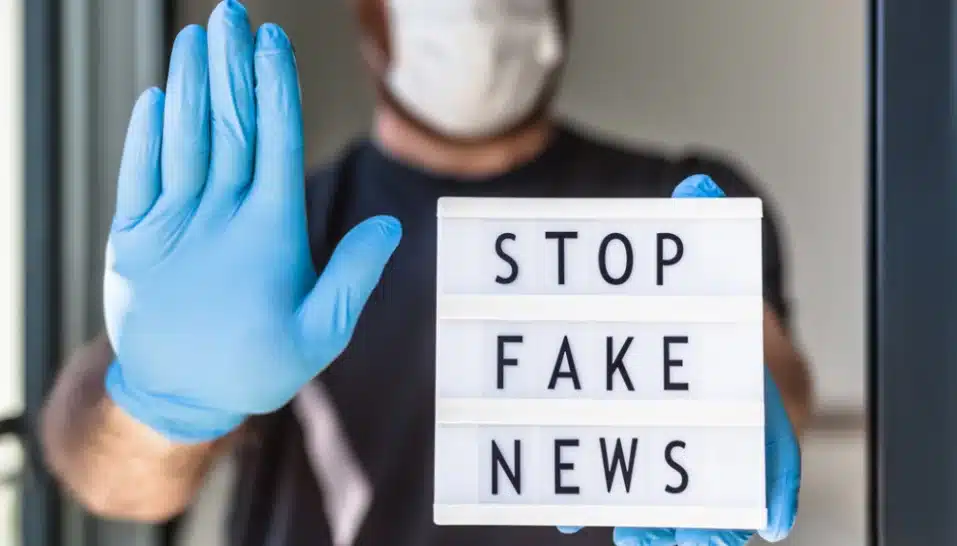Misinformation and rumours are three times more likely to be spread on social media as compared to accurate information. We need to adopt evidence-informed measures from a transdisciplinary perspective to win the battle against this parallel pandemic.
The World Health Organization (WHO) defines an infodemic as an “overabundance of information – some accurate and some not – that occurs during an epidemic makes it hard for people to find trustworthy sources and reliable guidance when they need it.”
The overflow of information about the COVID-19 pandemic on a daily basis has resulted in difficulties in discerning accurate information. Broad categories of misinformation related to COVID-19 include those about the disease itself, conspiracy theories, scapegoating, and false cures. These are spreading through digital media (e.g., Facebook, Twitter, YouTube, and WhatsApp) and traditional mass media (TV news, print media), calling for better regulation.
Evidence indicates that misinformation and rumours are three times more likely to be spread on social media as compared to accurate information. This is of great concern as it often leads to reduced trust in health institutions and services and impedes the evidenced-informed approach to managing the pandemic. This situation is exacerbated in developing countries by the low levels of health literacy, poor health infrastructure, and poor resource settings.
Evidence-informed efforts from a transdisciplinary perspective are needed to fight any infodemic. In our recent article published in BMJ Global Health – titled combating the COVID-19 infodemic: a three-level approach for low and middle-income countries – we suggest measures and approaches that can be undertaken to combat the COVID-19 infodemic and future infodemics.
Three-level approach
In the context of countering fake news, we suggest a three-level approach that consists of pre-emptive, immediate, and long-term measures.
Pre-emptive measures
This includes actions to prevent the infodemic as soon as it begins. This entails determining the agencies required to manage the infodemic, clarify their roles, enhance communication strategies, and train key people to monitor fake news and identify events that can create an infodemic flare.
Confidence-building measures to build trust in governments to provide information as early and as often as possible in a crisis, ministerial teams, task forces, legislative committees that can work year-round can undertake pre-emptive measures when necessary.
Immediate measures
This includes leveraging technology for monitoring, rumour detection, and overall strengthening of the infodemic response. Establishing systematic monitoring, disease surveillance, and evaluation system as well as promoting scientific research using robust methodologies and tools can inform existing infodemic or design responsive interventions and generate evidence for policy-making. The promotion of collective learning through the formation of communities of practice for regular sharing of experiences, learning, and best practices is called for.
Certification systems for fact-checking such as rumour detectors, fake news management, a health alert on social messengers, and a chatbot are few examples where technology can be leveraged. It is important to ensure that infodemic response is equity informed. Risk communication targeting vulnerable and marginalized populations for protecting and preventing ill effects of infodemic is critical.
Outreach interventions (with government schemes/aid) should target marginalized populations such as women, rural and informal settlement dwellers, refugee/migrant populations, nomadic tribes. Research with a focus on local voices, their beliefs, and misconceptions, what they want and why may contribute to increased trust and confidence in the local health system and governments.
Long-term measures
This includes public campaigns for preventing fake news and promoting healthy digital habits. For example, educating high-school students on identifying fake news, highlighting fake news on social media devices, promoting rumour reporting, and encouraging the use of accurate information. Another long-term measure is to embed infodemiology education into school and university curriculums. This measure may result in a well-informed citizenry capable of countering infodemics in the future.
Community health workers (CHWs) are an important link between the communities and the public health system. Training community health workers on fact-checking and effective communication can be a crucial community-level strategy for preventing rumours and improving access to accurate information.
Legislation is needed in areas such as technology infrastructure, information management and data privacy, access to technology (priority setting, inclusiveness, and equity), and ethical standards in order to facilitate an evidence-informed, expert-driven timely infodemic response. Ultimately, these actions are what will strengthen capacity and build resilience in the countries.
(The author is a psychologist, currently working as a scientist with the Indian Institute of Public Health Gandhinagar. He is also a member of First Check.)


















Add Comment